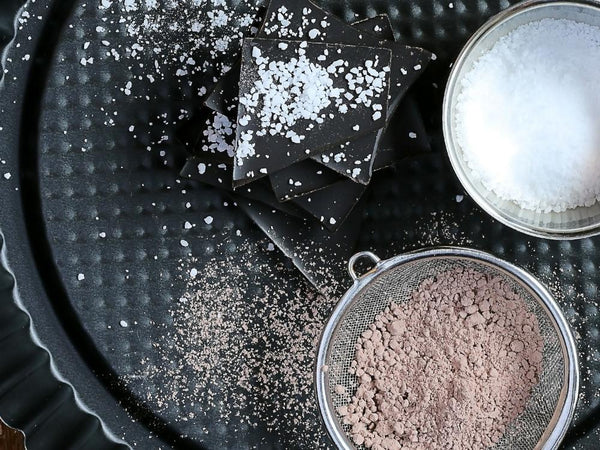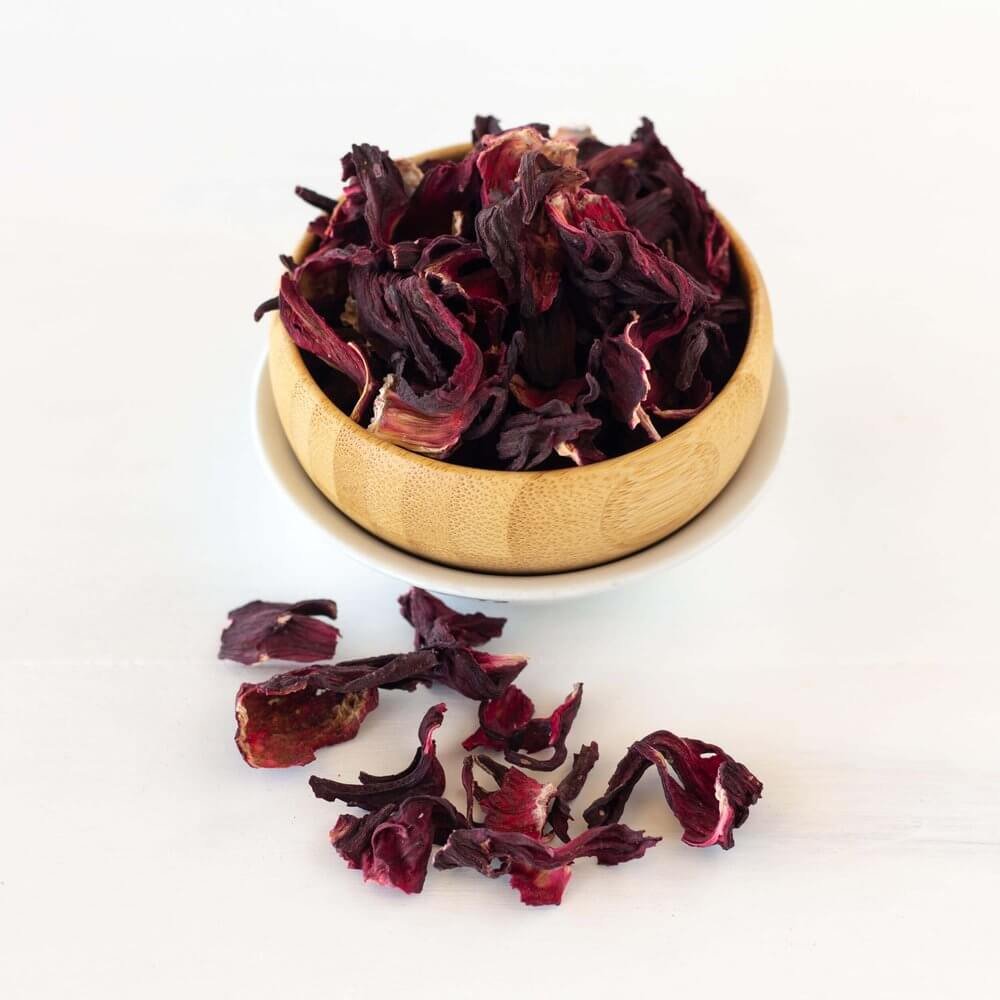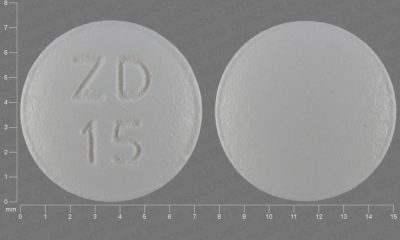Health
Benefits of alkaline water

Discover the benefits of alkaline water.
You may have already heard about alkaline water and its many properties and benefits.
And, although there are few studies on the matter, many companies and individuals maintain that drinking alkaline water frequently is beneficial for health.
Its promoters claim that it can help delay the aging process, regulate the body’s pH level and prevent diseases such as asthma, dermatitis, neuralgia, among others.
And so much, and so contradictory, is the information about alkaline water, that a large number of people, concerned about their well-being, have turned to see it as a very good alternative to improve and maintain health.
But what is true in this?
What is alkaline water?
It is a type of water subjected to an ionization process that separates the alkaline and acidic fractions, increasing the pH and raising it to more than seven units.
The pH of water is determined by the minerals that are in suspension and can be defined as the measure of the acidity of a medium.
Seven (7) is the pH balance point. Below that level, it is considered an acid medium, and above 7 a basic or alkaline medium.
It must be remembered that the planet’s natural water is found in acidity levels between 6.5 and 9 pH units. Levels higher than 9 are usually toxic.
It is important to clarify that if the degree of alkalinization of the water is low, it does not have to cause any problem to the human being. However, excessively alkaline waters can cause damage to the stomach.
According to Healthline, one of the negative side effects of drinking alkaline water includes reducing the natural acidity of the stomach.
How is alkaline water obtained?
Alkaline water can be obtained in different ways. One of them is to buy it packaged in supermarkets or health food stores.
However, in 2019 the Federal Consumer Protection Office conducted a qualitative study of 22 alkaline water brands, in which it concluded that 19 of those 22 products offered unproven benefits on their labels to the consumer.
It can also be obtained through water purifiers, whose filter system retains sediment and bacteria, providing water with a high degree of minerals such as sodium, calcium, magnesium, and potassium.
Another way to get it is at home. One option is to alkalize the water by boiling it for 5 minutes. In this way, it will increase its pH to 8.4, which is already considered alkaline water. It can also be obtained by adding half a tablespoon of baking soda to a glass of water. The pH will rise to 7.9.
In both cases, it’s important to use distilled water, because tap water or bottled water may have other additives.
What is the pH of water?
After talking so much about pH, you may be wondering what it is. The pH is a test that is carried out to know the quality of the water and indicates its acidity or alkalinity. Typically, these measurements are run on a scale of 0 to 14, with 7.0 being the neutral measurement.
From here, and above 8 points, they are considered alkaline. Below, they are considered acidic, always keeping in mind that in these measurements each point represents a tenfold change in acidity. That is, a pH of 6 would be 10 times more acidic than pH 7.
To give an example, we will say that lemon juice, which is an acidic liquid, has a pH of 2.5, while coffee has a pH of 5. On the other side of the scale, with a pH of 12, we would have water. limestone, which is when rainwater falls on an area with porous rock and soaks into the ground.
As it filters through the rock, it picks up and dissolves particles and minerals such as calcium and magnesium, gaining hardness and alkalinity.
At this point, you will surely ask yourself, what is the recommended pH of the water? According to experts -as established, for example, in the relevant regulations of the European Union- the pH of drinking water should be between 6.5 units and 9.5 units.
How to measure the pH of the water
There are manual and automatic pH meters. They are very simple and easy-to-use devices. And although automatic ones are more expensive, a manual meter will be just as effective at regulating water.
It is a kit that includes a test tube, two tubes, and reagents (substances or compounds to cause a chemical reaction).
You just have to take a sample of the water and, after following the instructions on the package, check what color the water stained with the reagent acquires.
Once the color is obtained, you should read the manufacturer’s instructions to know the degree of alkalinity.
Benefits of alkaline water
There are many benefits attributed to alkaline water. However, many studies are still lacking in this regard. Among the benefits that drinking alkaline water is said to have are:
It helps detoxify the body. Drinking alkaline water daily can neutralize acidity and remove acidic waste products from cells and tissues.
What is an antioxidant? Alkaline water is said to act as an antioxidant, scavenging and neutralizing harmful free radicals that damage skin and are responsible for aging.
This occurs because it supposedly can give up electrons and can effectively neutralize and block free radical damage in the body.
It helps balance the pH of the body. Alkaline water helps balance the body’s pH, which tends to be acidic due to a high-acid diet, stress, and exposure to environmental toxins like smog.
That improves the immune system. According to alkaline water enthusiasts, it preserves the immune system in a better state, which, as you know, is in charge of preparing the body to fight diseases.
That improves hydration. In the case of exercise-induced dehydration, the idea is supported that electrolyzed alkaline water reduces blood viscosity and vascular resistance.
What is an adjuvant in skincare? In addition to the health benefits attributed to drinking it, bathing in alkaline water is said to improve skin-related problems as well.
Lowers blood glucose levels. In some Asian countries, studies have been carried out that have shown that drinking alkaline water balances the functioning of the pancreas, thus helping to control blood glucose levels.
It helps in disorders of the gastrointestinal tract. Since alkaline water has a higher pH, its natural ability to neutralize acids in the stomach makes it a good choice for treating gastrointestinal tract disorders such as hyperacidity, diarrhea, etc.
It is said that in cases of laryngopharyngeal and gastroesophageal reflux diseases, alkaline water is efficient in neutralizing acid in the stomach.
That prevents osteoporosis. The human body strives to be slightly alkaline. The ideal pH level is 7.3 to 7.45. Alkaline water, which is obtained through purifiers, reaches these values and can even exceed them.
Those levels are very favorable for the human body. Well, consuming alkaline water prevents the body from extracting calcium from the bones to bring them to an alkaline state. That way you would be helping to prevent osteoporosis.
Is it good to drink alkaline water?
Some people claim that a more alkaline diet – including drinking alkaline water – can help reduce the body’s acidity and thus lead to better health and fitness.
And while the term “alkaline” has become a buzzword in health circles, the idea that everyone needs to drink alkaline water is a bit of a stretch.
Alkaline water is a controversial topic. Many health professionals say that there is not enough research to support the many health claims made by users and sellers.
Differences in research results may be related to the types of alkaline water studies.
According to the Mayo Clinic, plain water is best for most people and they maintain that there is no scientific evidence to fully verify the claims made by supporters of alkaline water.
However, some studies suggest alkaline water might be helpful for certain conditions.
For example:
A 2012 study found that drinking naturally carbonated alkaline well water with a pH of 8.8 can help deactivate pepsin, the main enzyme that causes acid reflux.
Another study suggested that drinking alkaline ionized water may have benefits for people with high blood pressure, diabetes, and high cholesterol.
A more recent study, involving 100 people, found a significant difference in blood viscosity after consuming high-pH water, compared to regular water, after intense training. Viscosity is the direct measure of how efficiently blood flows through the vessels.
Those who consumed water with a high pH reduced viscosity by 6.3% compared to 3.36% for standard purified drinking water.
This means that blood flows more efficiently with alkaline water. This can increase the supply of oxygen to the entire body.
However, beyond these isolated studies, more research is needed regarding alkaline water. In particular, research is needed to verify whether alkaline water offers all the benefits claimed by its promoters.
Despite the lack of proven scientific research, proponents of alkaline water still believe in its health benefits.
Therefore, when asked if it is worth buying and consuming this type of water, the answer is that it is better to hydrate with purified water.
There is a wide variety of point-of-use water purifiers on the market, both for offices and for the home, that purify water from the public network to obtain a liquid free of bacteria and viruses, with the pH that our organism needs.
There is a 2012 study that states that while an alkaline diet (including water) can reduce morbidity and mortality from chronic diseases, regular consumption of fruits and vegetables and an overall healthy diet are necessary.
Alkaline water is not a miracle product and is not a substitute for the benefits of a proper diet and healthy lifestyle.
It is also necessary to take into account that each organism has a unique pH, and our bodies naturally do a fantastic job of maintaining the pH of the blood within the necessary levels. Therefore, it is important to be cautious.
Finally, although there is indeed no contraindication regarding the consumption of this type of water, it is important to take into account how much alkaline water should be taken per day since it is not recommended to exceed its consumption since the body will always require natural liquid; that is, neither very alkaline nor very acidic either.
More than alkaline water, we need to improve our lifestyle
As you have seen, there is not enough research to support the benefits attributed to alkaline water.
It should be understood that the benefits could only be confirmed when combined with a healthy diet (rich in fruits, vegetables, legumes, and whole grains), an active lifestyle (30 minutes of daily exercise), healthy sleep and rest habits, as well as avoid the consumption of alcohol and tobacco.
Health
7 shocking health benefits of maqui

Table of Contents
Health
3 Benefits of salt water and side effects

Discover the 3 shocking health benefits of salt water and side effects.
Sometimes the best remedies in life are the simplest. This is true of an ancient skincare hack known for tightening pores, balancing oil production, and rejuvenating skin.
You won’t need fancy skin creams packed with chemicals and preservatives to achieve a youthful glow after this.
You can start to improve the quality of your skin with just two things: purified water and high-quality salt, and you will see how the benefits of saltwater will work miracles for you.
Health Benefits of saltwater
Since saltwater therapy has been used for centuries throughout the world, including ancient Greece, there is strong anecdotal evidence that it works wonders on the skin.
A handful of studies have found the saltwater bath to be particularly effective for troublesome skin conditions, such as psoriasis.
Saltwater is said to benefit your skin in the following eleven ways:
• Closes open pores
• Absorbs excess oil
• Balances oil production
• Kills acne-causing bacteria
• Diminish scars
• Heals scratches and cuts
• Exfoliates dead skin cells
• Restores the natural pH of the skin
• Improves the barrier function of the skin
• Improves hydration
• Reduces inflammation
1.- Benefits of salt water for acne
If you are lucky enough to live near the ocean, you may already know this beauty secret.
But if you don’t live on the coast, just fan warm salt water the next time you have an outbreak.
Try mixing a cup of purified water with a tablespoon of sea salt.
Use a cotton ball to gently apply saltwater to acne and allow it to dry.
By the way, if you try this treatment and your acne still isn’t clearing up within a day or two, maybe your diet is to blame.
Make sure to avoid sugar, processed junk, gluten, peanuts, yeast, and dairy for a while to see if your skin clears up.
Eat plenty of green leafy vegetables, lean protein sources, and healthy fats like coconut oil and avocados; your skin and waist will thank you.
2.- Benefits of salt water for scratches
If you’ve ever heard the expression “throwing salt on a wound,” you probably aren’t very interested in putting salt water near your scratches.
However, this treatment can be beneficial in killing harmful bacteria and speeding up the healing process.
Research shows that bathing in magnesium-rich Dead Sea salt improves the skin’s barrier function, improves skin hydration, and reduces skin inflammation, which are all the things you’ll need if you have a cut or scratch.
Fill your bathtub with warm water and pour in a cup of sea salt.
Take the experience to the next level by adding 10 drops of lavender essential oil.
The scent will promote a deep sense of relaxation – you may even feel like you are in a spa!
3.- Drink salt water to heal from the inside out
The good thing about salt water is that there are many ways to use it. A glass of warm salt water, called “Sole,” is a great way to start your day and promote internal healing.
As long as you use a natural form of salt (and avoid drinking seawater), it will promote hydration, facilitate digestion, reduce inflammation, improve your sleep, detoxify your cells, improve your bone health, and more.
What does salt do to the body
We rarely think about what goes into nature’s most common treasures, like salt.
This natural mineral comes directly from the earth, formed into crystals from a combination of sodium and chloride.
It is found naturally in seawater, making up at least three percent of our world’s oceans. And when seawater is trapped, the water evaporates and leaves salt crystals.
Despite what you may have heard about sodium and your health, a natural source of salt contains vital nutrients that are important for maintaining optimal well-being.
First, salt provides key minerals like sulfur, calcium, sodium, magnesium, silicon, boron, potassium, bromine, and strontium.
With its rich mineral content, salt can help you lose weight, reduce asthma symptoms, improve blood sugar levels, and regulate heart health.
However, keep in mind that not all salts are created equal. Table salt, for example, is highly processed and bleached before it reaches that little glass bottle.
Unfortunately, during mass production, manufacturers strip you of everything good for your health.
The result is a product that does not resemble its original form and can even harm your health. When doctors warn against consuming too much salt, table salt is what they mean.
For your skincare routine and general health, try using these unprocessed varieties:
Sea salt for skin
Natural sea salt contains the many minerals our bodies need, such as magnesium, calcium, sodium, and potassium.
All of these play a role in the health of our skin, allowing cells to communicate with each other and heal problems that arise.
When you don’t have enough minerals, you will see annoying symptoms like dry skin, dullness, irritation, and blemishes.
Fortunately, sea salt can naturally enhance hydration and strengthen the outer layer of your skin to keep it looking healthy.
Himalayan pink salt for skin
Despite the name, there are no salt mines in the Himalayas. The pink salt slabs come from the Khewra Salt Mine in Pakistan, about 300 miles west of the Himalayas.
As the second-largest salt mine in the world, people have been collecting this commodity for more than 2,000 years.
Only in the last decade has it become popular in Western culture. Salt is made up of 95 percent sodium chloride.
The rest is a mixture of polyhalite and other minerals, which give the salt its characteristic pinkish hue.
Due to the lack of processing, it still contains the beneficial minerals that your skin will love.
As you can see, saltwater provide a series of skincare benefits, so if you want to show off shiny and well-groomed skin, do not hesitate to follow each of the tips in this publication step by step.
Health
12 Benefits of Jamaica flower and side effects

Table of Contents
-

 Food1 year ago
Food1 year ago10 + Benefits of carrot juice and side effects
-

 Health12 months ago
Health12 months ago50 Super Healthy (And Very Often Cheap) Foods
-

 Health1 year ago
Health1 year ago5 Shocking health benefits of kinkeliba and side effects
-

 Food1 year ago
Food1 year ago8 shocking benefits of leek juice and side effects
-

 Health1 year ago
Health1 year agoBenefits of guava leaves Sensually
-

 Weight Loss1 year ago
Weight Loss1 year agoChaz Bono weight loss secret
-

 Health1 year ago
Health1 year ago13 shocking health benefits of Thai eggplant
-

 Food12 months ago
Food12 months ago19 Benefits of tobacco plant and side effects












